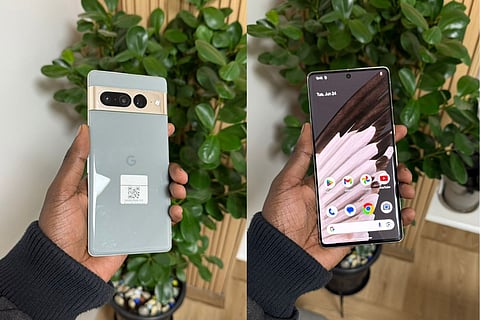
- LIFESTYLE
- FASHION
- FOOD
- ENTERTAINMENT
- EVENTS
- CULTURE
- VIDEOS
- WEB STORIES
- GALLERIES
- GADGETS
- CAR & BIKE
- SOCIETY
- TRAVEL
- NORTH EAST
- INDULGE CONNECT

The Tokyo District Court ruled in favor of the complainants, Pantech and IdeaHub, asserting that Google’s use of the ACK signal process violated existing patent protections. The court’s decision was reportedly influenced not just by the technical infringement, but also by Google’s conduct during proceedings, which was described as “insincere.” This assessment led to a full sales ban rather than a more lenient penalty or out-of-court settlement.
The Tokyo District Court ruled in favor of the complainants, Pantech and IdeaHub, asserting that Google’s use of the ACK signal process violated existing patent protections. The court’s decision was reportedly influenced not just by the technical infringement, but also by Google’s conduct during proceedings, which was described as “insincere.” This assessment led to a full sales ban rather than a more lenient penalty or out-of-court settlement.
The implications for Google are significant. Japan is one of its most successful international markets, where Pixel devices have surged in popularity and now rank just behind Apple’s iPhone in sales. The Pixel 7 lineup, along with the budget-friendly Pixel 7a, played a key role in this growth.
With the Pixel 9 set to debut later this year, the ban could disrupt momentum and dent consumer confidence. Adding to the pressure, the plaintiffs are now seeking to extend the ban to cover future devices, including the Pixel 8 and Pixel 9 series. While no court ruling has yet been made on these upcoming models, the possibility of a broader ban looms large.
Google has not yet released an official statement addressing the court’s decision or outlining its next steps. The company could appeal, seek a licensing agreement, or alter its hardware designs to sidestep the patent issue, all of which pose challenges.
This case also reflects a growing legal trend where dormant or non-producing patent holders are actively enforcing claims, posing a new layer of risk for major tech firms operating globally.